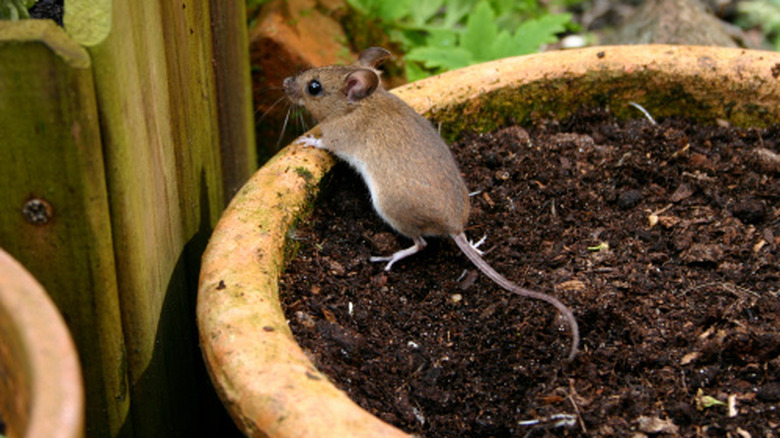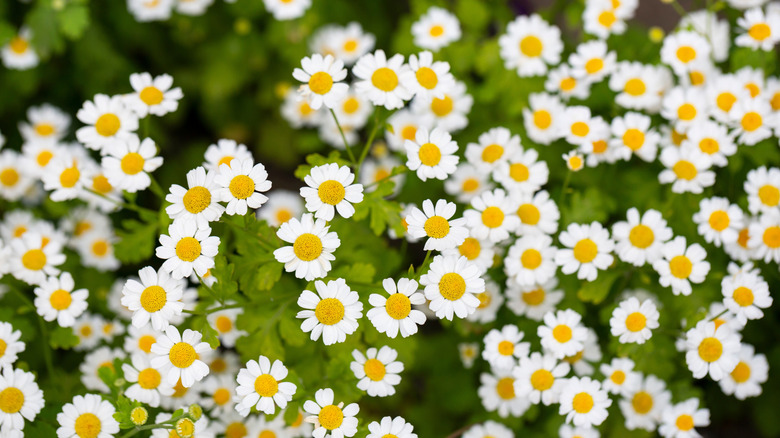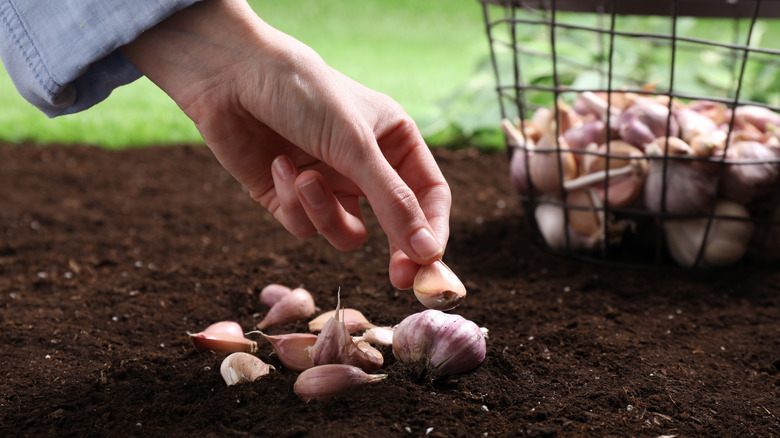Planting One Certain Type Of Daisy Could Keep Your Garden Free Of Mice
If you've noticed chewed leaves, scattered droppings, or a strange smell lingering in the garden, mice are likely the culprits. These rodents can sneak in quietly and create damage before you ever spot them. Instead of turning to traps or poisons, many gardeners are choosing a safer, natural solution by planting a specific type of daisy that mice instinctively avoid. The pyrethrum daisy (Tanacetum cinerariifolium), also known as the painted daisy, produces a compound called pyrethrin. It's one of nature's oldest insecticides. Pyrethrin is toxic to pests, but it can also affect rodents. This compound interferes with how the nervous system functions in rats and insects.
In long-term studies, mice and rats fed high doses of pyrethrin developed liver tumors. For this reason, the U.S. Environmental Protection Agency considers pyrethrin unlikely to cause cancer when exposure stays below certain levels. But once that threshold is crossed, the risk increases, and animals like mice often avoid what they sense could harm them. Gardeners who plant these flowers around sheds, compost bins, or raised flower beds may often notice fewer signs of rodent activity. The living flowers aren't harmful to beneficial pollinators, making them a low-risk, multi-purpose addition to pest-prone areas.
How to grow painted daisies in your garden
Painted daisies are easy to grow and bring both beauty and purpose to any garden. For best results, plant these daisies in a spot that gets full sun to partial shade. In cooler northern climates, full sun helps them thrive, while in hotter regions, they'll benefit from a bit of midday shade to prevent stress. Pyrethrum daisies grow best in well-drained, sandy to loamy soil with moderate moisture. They prefer average garden conditions and don't require anything fancy. However, do not water them more than once a week, as it can cause root rot.
After settling, these plants become drought-tolerant and easy to care for, making them a reliable choice for low-maintenance gardens. As they mature, these plants develop into tidy, bushy clusters that stand between 1 ½ to 2 ½ feet tall and grow to a similar width. These daisies grow best in USDA Hardiness Zones 3 to 7, and are not recommended for areas south of zone 7.
Once the flowers fade, removing them can encourage the plant to bloom again and refresh its leaves. But be very careful in handling the daisies as their sap can cause irritation on the skin. Other than that, these plants are generally trouble-free in the garden, but it's still a good idea to keep an eye out for common issues like aphids or leaf damage caused by harmful pests.
Other natural ways to keep mice out of your garden
Combining painted daisies with other natural strategies can make your garden even less inviting to mice. Start by getting rid of mice nests in your shed and yard. Soft, loose mulch can invite mice to settle in, especially near plants or garden statues. Skip straw and thick layers, and avoid piling mulch directly against tree trunks to reduce potential nesting spots. To protect young trees from rodent damage, place a physical barrier like hardware cloth around the base. Once the weather warms up, take it off so it doesn't interfere with the tree's growth.
Lavender is another potential strong repellent. Mice can't stand its scent. You can plant it along the edges of garden beds. Some people also use lavender essential oil by soaking cotton balls and placing them near entry points. However, this method is less effective outdoors, since the scent fades quickly with wind and weather.
Garlic may also be a useful natural deterrent, but it only works if you apply it consistently. Its natural sulfur compounds produce a sharp odor that overwhelms a rodent's sense of smell. Whole garlic cloves can be tucked into small corners where mice are most active. But for a stronger effect, use crushed garlic or make a simple garlic spray by mixing it with water and applying it to problem areas. However, it's important to remember that natural methods don't always work for everyone. If you're dealing with a serious or ongoing mouse problem, it's best to consult a pest control professional.


